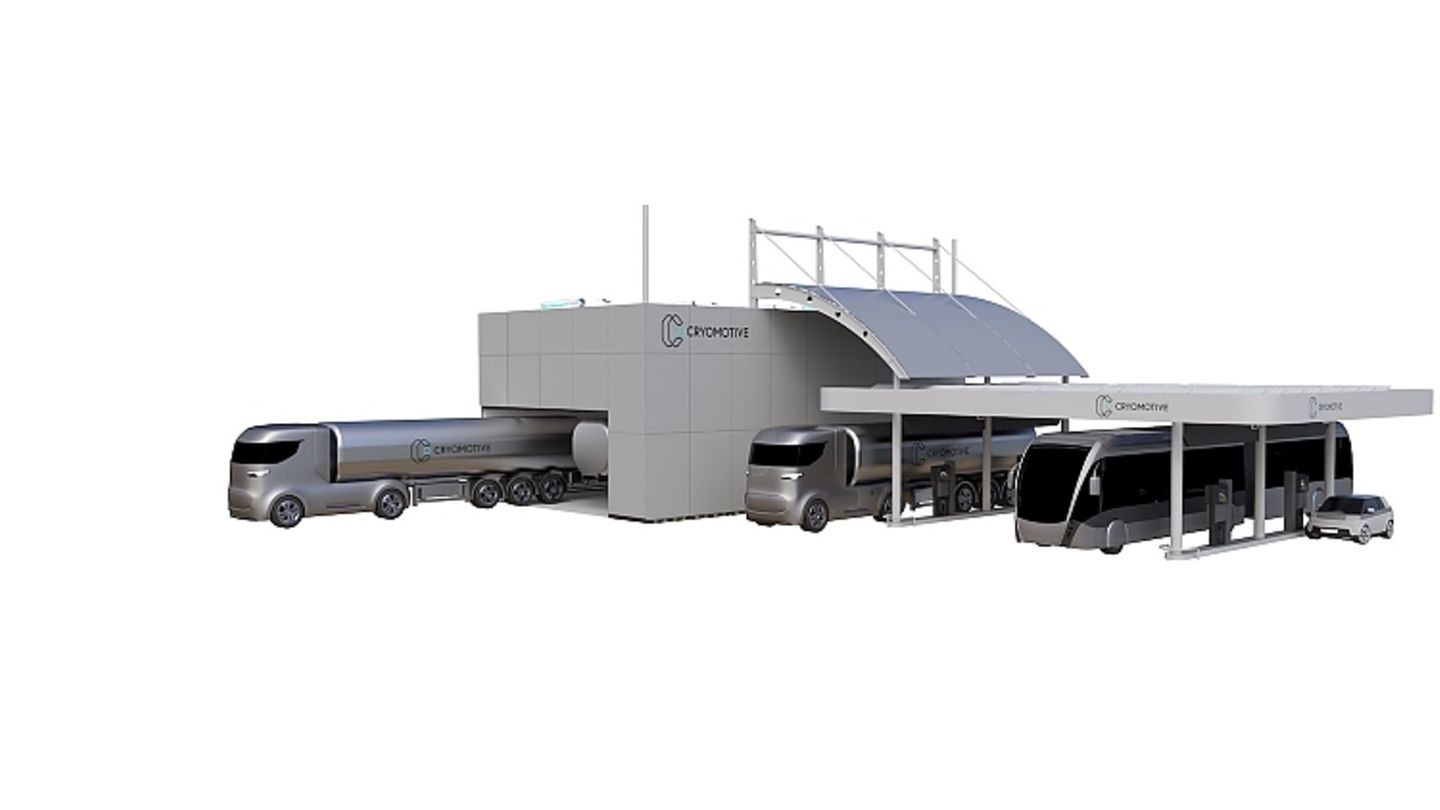Many car manufacturers agree that fuel cell technology will have its future in trucks. A German consortium is now starting tests and wants to put 1,000 kilometers per refueling into series production in the second half of the decade.
With corporations such as Stellantis, BMW or Honda, some brands are still sticking to fuel cell technology for passenger cars. However, most manufacturers agree that the large high-pressure tanks for hydrogen have a future in commercial vehicles, and here in particular in trucks. The Cryotruck consortium is now starting to develop and test hydrogen tanks and refueling systems for fuel cell trucks in long-distance transport. The hydrogen mobility startup Cryomotive, the commercial vehicle manufacturer MAN, as well as the commercial vehicle converter Clean Logistics, test expert IABG and the Technical University of Munich are jointly developing a cryogas hydrogen tank with a refueling system for trucks. The goal is a range of 1,000 kilometers per tank filling and refueling in a brisk ten minutes.
At the beginning of the year, the still young cryotruck consortium received the prospect of funding from the Federal Ministry for Digital Affairs and Transport. “With alternative drives and fuels, we want to achieve zero-emissions logistics on the road. Around 90 percent of the CO2 emissions in the transport sector come from road traffic, with trucks accounting for a third,” says Dr. Volker Wissing, Federal Minister for Digital Affairs and Transport, “the development and testing of hydrogen gas tanks and refueling systems for fuel cell trucks in long-distance transport are a correct and important step for more climate protection in traffic. I am very excited about the results of the consortium in terms of refueling time and range regarding.”
The Cryotruck project, which is scheduled to last three and a half years and has a total budget of around 25 million euros, will focus on the development of a first technology generation of a storage and refueling system for cryogenic compressed hydrogen gas in heavy fuel cell trucks. With the comparatively inexpensive and compact cryogas storage technology and a newly designed energy-efficient rapid refueling system for cryogenic hydrogen gas, future long-distance hydrogen trucks can achieve a range of 1,000 km with one refueling and refuel with the necessary hydrogen in ten minutes. Cryogas, a high-density cryogenic compressed gas, can be generated from either liquid or gaseous hydrogen. The technology can thus be based on existing gaseous hydrogen infrastructures as well as use newly created liquid hydrogen infrastructures for commercial vehicles.
The cryotruck consortium brings together leading hydrogen refueling, test and commercial vehicle expertise. Hydrogen mobility startup Cryomotive provides the development and manufacturing expertise for cryogenic hydrogen tank and refueling technology in the project. The commercial vehicle manufacturer MAN and the truck converter Clean Logistics, which converts existing trucks from diesel to hydrogen drive, contribute the necessary knowledge for the test vehicles. IABG has the necessary expertise to test tank and refueling technology. The three chairs at the Technical University of Munich support the whole thing in areas such as modelling, simulation, concept development, carbon fiber composite material, manufacturing and metal forming technology. By 2024 at the latest, the Cryogas consortium wants to integrate developed hydrogen tank systems with 80 kg hydrogen storage capacity and an energy content of more than 2,600 kWh into two different prototypes and start driving tests. Let’s see what comes of it, because at the same time Mercedes and Volvo are researching similar truck drives as is the Hyundai group.
Source: Stern
I am a 24-year-old writer and journalist who has been working in the news industry for the past two years. I write primarily about market news, so if you’re looking for insights into what’s going on in the stock market or economic indicators, you’ve come to the right place. I also dabble in writing articles on lifestyle trends and pop culture news.




